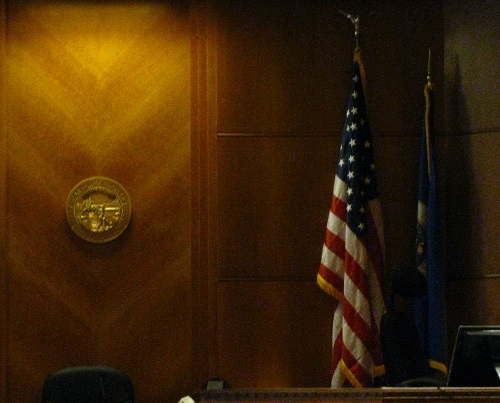 Last week saw the retirement of 2nd Judicial District Judge Joanne Smith marked by a surprise party that honored her service, especially her key role on the Ramsey County Adult Substance Abuse Court. Per the Pioneer Press article, Judge Smith has spent the last 13 of her 32 years on the bench administering the adult drug court, which she herself founded in 2001. Since that time the drug court has become a national model for other drug courts. Many graduates of the program attended to pay their respects and express their personal gratitude to Judge Smith.
Last week saw the retirement of 2nd Judicial District Judge Joanne Smith marked by a surprise party that honored her service, especially her key role on the Ramsey County Adult Substance Abuse Court. Per the Pioneer Press article, Judge Smith has spent the last 13 of her 32 years on the bench administering the adult drug court, which she herself founded in 2001. Since that time the drug court has become a national model for other drug courts. Many graduates of the program attended to pay their respects and express their personal gratitude to Judge Smith.
The article did not state whether or not Judge Smith had met the age of mandatory retirement under Minnesota law for judges. Nonetheless, this interesting subject is worth a look following her event. It’s probably fair to say that MN Stat. §490.125 brings more Minnesota judges to retirement than any other singular factor. This mandatory retirement statute, which requires Minnesota judges to retire when they turn 70, was particularly visible this past summer with the retirement of popular Minnesota Supreme Court Justice Alan Page.
Is Minnesota’s law a curiosity? Clearly the U.S. Supreme Court has no such retirement age. Oliver Wendell Holmes was 90 when he finally stepped down from the Supreme Court. Numerous other states have mandatory retirement ages for judges of 70 or 75, but many also have none. Among the “none” count is Wisconsin, which used to have a mandatory retirement age of 70. In 1956, Minnesota legal scholar Maynard Pirsig analyzed a possible mandatory retirement age for judges at the end of his article “The Proposed Amendment of the Judiciary Article of the Minnesota Constitution.” (40 Minn. Law. Rev. 815, 840). In his article he stated that a constitutionally-provided retirement package might convince most (but not all) aging judges that it was in their best interest to retire. Pirsig also asserted that “[N]o one is more tenacious in his belief in his own competence than an aging judge.” (He himself would have been 91 years old when he retired from his job as a professor at William Mitchell College of Law.) The Minnesota Constitution was subsequently amended in 1956, allowing the legislature to establish a mandatory retirement age. The legislature would do exactly this in 1973 as part of the Uniform Judicial Retirement Plan.
One judge resisted this mandatory retirement age with all he had, ultimately taking his case to the Minnesota Supreme Court. His arguments came up short, however, for the Court held that “[T]he legislative selection of the age of 70 as the optimal time for an individual’s retirement constitutes a reasonable exercise of its authority and appears to most readily promote the state’s interests in the provision of benefits in exchange for a date certain for relinquishment of office.” (Saetre v. Minnesota, et al. 398 N.W.2d 538 (1986). So according the Saetre opinion, firming up judge retirement provisions was a special priority of the Legislature back in 1973. To speculate, there may have been a time that many judges lacked adequate retirement funds and felt that their only option was to go on judging into their sunsets. One can also imagine that judges who either had long careers on the bench, and/or who had practiced in less lucrative areas of law would have lacked significant retirement security of their own.








